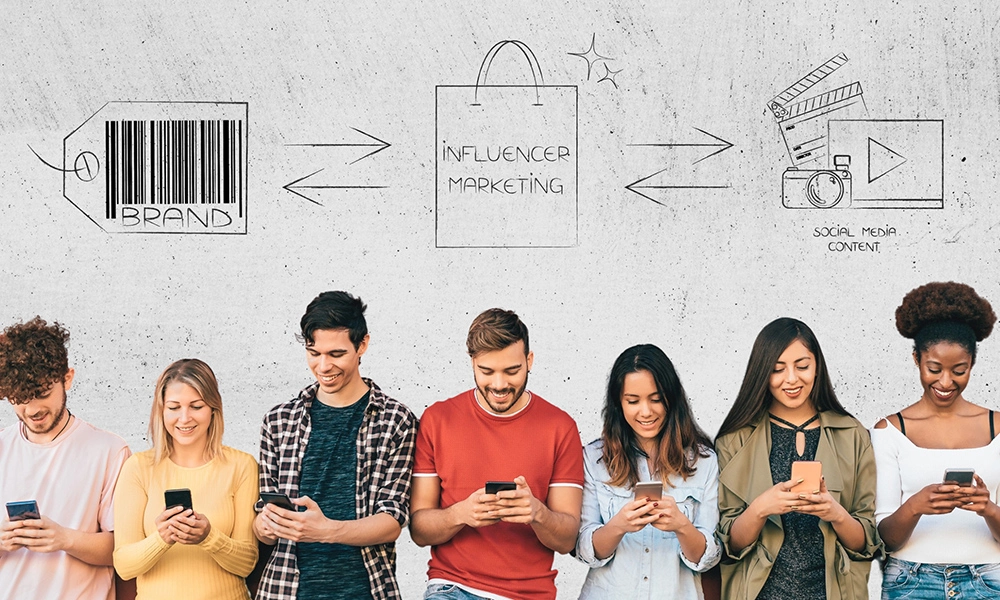Unveiling the Art of Authenticity: Elevate Your Business Marketing Strategy

Table of Contents
business marketing strategy In the ever-evolving landscape of business, where competition is fierce and consumer trust is paramount, authenticity has emerged as a powerful differentiator. Authenticity is not just a buzzword; it’s a cornerstone of effective business marketing strategy. By infusing authenticity into your marketing efforts, you can build stronger connections with your audience, foster brand loyalty, and ultimately drive business growth. Let’s delve into the art of authenticity and explore how you can elevate your business marketing strategy to stand out in today’s crowded marketplace.

Understanding the Essence of Authenticity
Authenticity is about being genuine, transparent, and true to your brand’s values, identity, and purpose. It’s about more than just putting on a facade or following trends; it’s about being real and honest in your interactions with customers and stakeholders. Authenticity resonates with consumers because it builds trust and credibility, fostering deeper emotional connections that go beyond transactional relationships.
The Importance of Authenticity in Marketing
In an age of information overload and skepticism, consumers are increasingly seeking authentic brands they can relate to and trust. Authenticity has become a key driver of consumer purchasing decisions, with studies showing that a majority of consumers are more likely to support brands that they perceive as authentic. By embracing authenticity in your marketing efforts, you can differentiate your brand from competitors, engender trust with your audience, and cultivate a loyal customer base.
Key Strategies for Infusing Authenticity Into Your Marketing
Authenticity cannot be manufactured or contrived; it must be cultivated and nurtured over time. Here are some key strategies for infusing authenticity into your business marketing strategy:
1. Know Your Brand Identity Inside Out
Authenticity begins with a deep understanding of your brand’s identity, values, and mission. Take the time to define what your brand stands for and what sets it apart from competitors. Consider what you want to be known for and how you want to be perceived by your audience. By staying true to your brand identity and values, you can ensure that your marketing efforts are authentic and resonate with your target audience.
2. Be Transparent and Honest
Transparency is a fundamental aspect of authenticity. Be open and honest with your audience about your products, services, and business practices. Avoid making exaggerated claims or misleading statements in your marketing materials. Instead, focus on providing accurate information and setting realistic expectations. Transparency builds trust and credibility with your audience, fostering stronger relationships and long-term loyalty.
3. Share Your Story
Every brand has a story to tell. Share your brand’s journey, values, and vision with your audience through compelling storytelling. Highlight the people behind your brand, the challenges you’ve overcome, and the impact you’re making in your industry or community. Authentic storytelling humanizes your brand, making it more relatable and engaging to your audience.
4. Showcase Real People and Experiences
Authenticity is about showcasing real people and experiences, not just polished images and staged scenarios. Incorporate user-generated content, customer testimonials, and behind-the-scenes footage into your marketing materials to provide an authentic glimpse into your brand and its impact on people’s lives. By featuring real stories and experiences, you can build trust and authenticity with your audience.
5. Engage with Your Audience Authentically
Authenticity is also about engaging with your audience in a genuine and meaningful way. Listen to their feedback, respond to their questions and concerns, and show appreciation for their support. Avoid using canned responses or automated messages in your interactions with customers. Instead, personalize your communication and show genuine interest in their needs and preferences.
Case Studies: Brands Embracing Authenticity in Their Marketing
Let’s take a look at some real-world examples of brands that have successfully infused authenticity into their business marketing strategy:
1. Patagonia: Environmental Activism and Transparency
Patagonia, the outdoor apparel company, has long been a champion of environmental activism and sustainability. The brand’s commitment to transparency and ethical business practices is evident in its marketing efforts, which often highlight its environmental initiatives, supply chain transparency, and advocacy for social and environmental causes. By aligning its marketing with its core values, Patagonia has built a loyal following of environmentally-conscious consumers who trust and support the brand.
2. Dove: Real Beauty Campaign
Dove’s “Real Beauty” campaign is another example of authenticity in marketing. The campaign, which features real women of all shapes, sizes, and ethnicities, challenges traditional beauty standards and promotes body positivity and self-acceptance. By celebrating real women and their natural beauty, Dove has struck a chord with consumers and created a powerful emotional connection that transcends traditional advertising.
3. Airbnb: Community and Connection
Airbnb’s marketing is centered around the theme of community and connection, emphasizing the unique experiences and connections that travelers can have by staying in Airbnb accommodations. The brand’s marketing materials often feature real hosts and guests sharing their stories and experiences, showcasing the diversity and authenticity of the Airbnb community. By highlighting the human side of travel, Airbnb has built a strong brand identity based on authenticity, trust, and connection.
business marketing strategy
In conclusion, authenticity is a powerful ally in your quest to elevate your business marketing strategy. By embracing authenticity and infusing it into every aspect of your marketing efforts, you can build stronger connections with your audience, foster trust and credibility, and differentiate your brand from competitors. Authenticity is not just a marketing tactic; it’s a mindset and a commitment to being genuine, transparent, and true to your brand’s values. By prioritizing authenticity in your marketing strategy, you can create a lasting impact and drive business success in today’s competitive marketplace.





